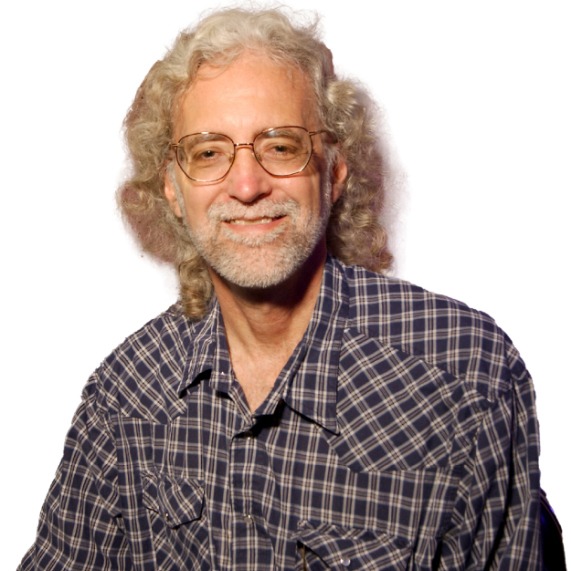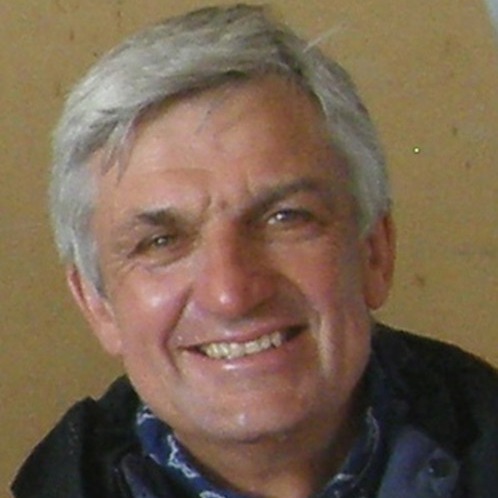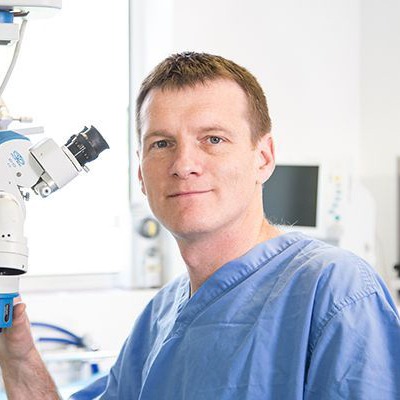Equine Corneal Disease - Diagnostic & Therapeutic Challenges
Species
Equine
Contact Hours
3 Hours
Early Booking Deadline
Thu, 01 January, 1970
Registration Deadline
Thu, 01 January, 1970
Language
English
Discipline
Diagnostic Imaging
Ophthalmology
Surgery
Toxicology & Pharmacology
Industry Partners
Global

Veterinary Partners
Global


Recorded on: 6th October 2020
Panelists:
Brian Gilger DVM, MS, DACVO, DABT, FARVO – North Carolina State University, USA
Dennis Brooks DVM, PhD, DACVO – Brooks Eyes, USA
Brian Patterson BVM&S, CertVOphthal, MRCVS – Consultant, UK
Moderator:
Andy Matthews BVM&S, PhD, DECEIM, HonMemberACVO, FRCVS – Consultant, UK
CONTENT DESCRIPTION
The panel will be opened by a brief introduction to clinically important aspects of corneal immunopathology relating to ulcerative and non ulcerative corneal disease.
This will be followed by a structured panel discussion on the practical challenges arising with diagnosis and clinical management of corneal disease in the horse. This will include consideration of some of the more controversial topics currently under debate, and discussion of individual cases submitted by participating veterinarians.
GENERAL
- Should we consider genetics as a cause of corneal disease?
- Does (immune)phenotype have a role in disease susceptibility and expression. Can immunophenotype make corneal disease in some horses impossible to manage effectively?
- Is corneal biopsy an underused diagnostic modality? What are the circumstances in which one might use this technique, and do the advantages always outweigh the risks?
- What are the merits of bandage contact lenses, and when would one use them?
- Is corneal vascularisation an appropriate clinical goal when managing stromal loss? Is conjunctival grafting really what we should be doing?
- How realistic is it to promote a clear cornea as a clinical goal in managing stromal loss as is currently the case? Will we ever be able to achieve it?
MEDICAL
- Should we be concerned about conjunctival ulcers in horses? Are they relevant?
- Does viral keratitis really exist? How can we confirm this?
- How important is the tear film in the genesis and management of superficial or epithelial disease? How important is the tear film in general? Particularly in corneal healing. Do we ignore management of the tear film at our peril?
- What are the best options for tear film support?
- How important are enzyme inhibitors vs. antimicrobials in managing corneal ulceration? How best can antiprotease therapy be instigated and managed? When is it appropriate to withdraw antiprotease therapy in cases of ulceration?
- Is there any topical pharmaceutical that is not toxic to repairing corneal epithelium? Once corneal healing is underway, when is it appropriate to withdraw all topical treatment?
- Is prophylactic use of topical antifungal or antibacterial drugs helpful or harmful?
- Why are the immune-mediated keratitis group of keratopathies so difficult to manage? Will there ever be a universal panacea, or even satisfactory medical management protocols?
- What role does intrastromal drug delivery have in managing equine corneal disease?
- Do mesenchymal stem cells have a role in the management of corneal disease?
- What might be the aetiogenesis of Eosinophillic Keratitis? Is it a syndrome rather than a specific disease entity? Why its apparent seasonality? What might determine the differing presentations of the disease? Best options for management and prevention.
- Why does the prevalence of keratomycosis show such geographic variation? Is it really down to environmental factors?
- Do horses get immune-mediated dry eye?
- Does anyone know the proper protocol for Corneal Cross Linking in the management of corneal ulceration in the horse?
- Current thoughts on the aetiology and potential best therapy in cases of banded corneal oedema?
- Does topical hyperosmotic saline have a therapeutic role to play in clinical practice? When, why and for how long should it be used?
SURGICAL
- What are the clinical advantages of diamond burr debridement? When and in what circumstances is this technique of therapeutic benefit?
- Given corneal ulceration essentially reflects the host’s repair processes in action, can surgical intervention too early in the process be counterproductive? At what point does surgical intervention become appropriate: what clinical criteria should be used to determine when that point has been reached?
- How do we reduce rejection seen in all equine corneal transplants in order to perform transplants for optical reasons?
- Is suture induced astigmatism in horses following posterior keratoplasty also a concern?
- What tissue is best for a corneal transplant in horses?
- Iris prolapse – Should anterior synechia that the horse has created to plug the leak be eliminated?
- Is the use of tissue glues a reasonable therapy for corneal microleaks? Which is best? When should they not be used?
Andy graduated with Distinction from the Royal (Dick) School of Veterinary Studies at the University of Edinburgh in 1976. Following completion of a Research Studentship and a subsequent two year period as a Lecture in Veterinary Surgery at the University of Edinburgh he was awarded a PhD in equine immunology and protein genetics. After a period spent in Equine Practice in Warwickshire he returned to Scotland to take up a Partnership with the McKenzie, Bryson and Marshall in Ayrshire. Now retired from practice Andy is based in Angus, Scotland and is focusing on referral eye cases and teaching. His primary and long term clinical interest is in Equine Ophthalmology, in particular ocular immunobiology. Andy has co-authored several textbooks on the subject in addition to having been sole or senior author of over 30 peer reviewed papers, and in 1991 was awarded the BEVA Richard Hartley Clinical Prize for published work. He was awarded Fellowship of the Royal College of Veterinary Surgeons in 1994, and in 2004 became a Diplomate of the European College of Equine Internal Medicine. In 2011 he became one of only two individuals to be awarded honorary Membership of the American College of Veterinary Ophthalmologists. In 2012-2014 he was President of the International Equine Ophthalmology Consortium (IEOC). Andy is an honorary faculty member of both the University of Edinburgh and University of Glasgow Veterinary Schools, and has lectured regularly both in the UK and internationally.
Brian is a native of Akron, Ohio, USA and received his veterinary degree from The Ohio State University in Columbus, Ohio. After a 1-year internship at The Animal Medical Center in New York City and a 3-year ophthalmology residency at Auburn University in Alabama, he returned to The Ohio State University as an Assistant Professor of Ophthalmology in 1992. In October of 1995, Brian joined the faculty at North Carolina State University as an Associate Professor of Ophthalmology and is now a Professor of Ophthalmology and head of clinical ophthalmology at NC State University. He is a Diplomate of the American College of Veterinary Ophthalmologists and a Diplomate of the American Board of Toxicology. Brian is the immediate past president of the American College of Veterinary Ophthalmologists. His clinical interests include treatment of equine recurrent uveitis, corneal disease, and intraocular surgery. Brian's main research interest is ocular immunology, imaging, and drug delivery. He is the author of over 100 peer-reviewed publications, 30 book chapters, and 3 books, including two editions of 'Equine Ophthalmology'. He is also the co-founder of the International Equine Ophthalmology Consortium and serves as a member of its governing board.
Brians undergraduate training took place at the Royal Dick School of Veterinary Studies. Following a short period in general practice Brian undertook a two year internship at Liphook Equine Hospital followed by two years as an ambulatory equine clinician at the Arundel Equine Hospital. Brian returned to Glasgow University to undertake a three year residency in equine medicine and surgery with particular reference to ophthalmology. During this period Brian attained the RCVS certificate in ophthalmology. Brian is one of only a handful of clinicians in the UK who practices as a full time veterinary ophthalmologist.
RCVS Advanced Practitioner in Veterinary Ophthalmology
Brian graduated from Edinburgh University in 1996. After completing a two year hospital internship at the Liphook equine hospital, he took up a 3 year residency at the Weipers Centre, University of Glasgow, and whilst there was awarded the RCVS certificate in ophthalmology in 2002.
For the last eight years he has worked as a veterinary ophthalmologist in the south west of England.
As a full time veterinary ophthalmologist, Brian has been involved in teaching ophthalmology at the University of Bristol (2010-2012) and has lectured both nationally and internationally.

Dennis Brooks
DVM, PhD, Dipl.ACVO
Peterson Smith Equine Hospital; Brazos Valley Equine Hospital, USA


Dennis E. Brooks passed the certifying examination of the American College of Veterinary Ophthalmologists in 1984. Dr Brooks received a PhD in 1987 from the University Of Florida College Of Medicine. Dr Brooks has been a scientist and clinician in academia and is a Professor Emeritus of Ophthalmology. He was the President of the American College of Veterinary Ophthalmologists from 1997-1998.
Dr Brooks has written over 170 academic scientific publications, 76 book chapters, received $2.3 million in research grants, and has given over 300 lectures both nationally and internationally in comparative ophthalmology. His book, Equine Ophthalmology, was published in 2002 and again in 2008. A book Small Animal Ophthalmology was published in 2011.
He received the British Equine Veterinary Association’s Sir Frederick Smith Memorial Lecture and Medal Recipient in 2007, and received the Frank J. Milne State of the Art Award of the American Association of Equine Practitioners in 2010. Dr Brooks has extensive experience in amnion grafting, corneal transplantation and cataract surgeries of the horse.
Veterinary Student
Online Panel Discussion
USD 35.00
Qualified Vet
Online Panel Discussion
USD 85.00
Intern/Resident (Requires proof of status)
Online Panel Discussion
USD 65.00
Vet Nurse/Vet Tech (Requires proof of status)
Online Panel Discussion
USD 65.00
If the options you are looking for are unavailable, please contact us.
No tax will be added unless you are a UK taxpayer
Choose currency at checkout















